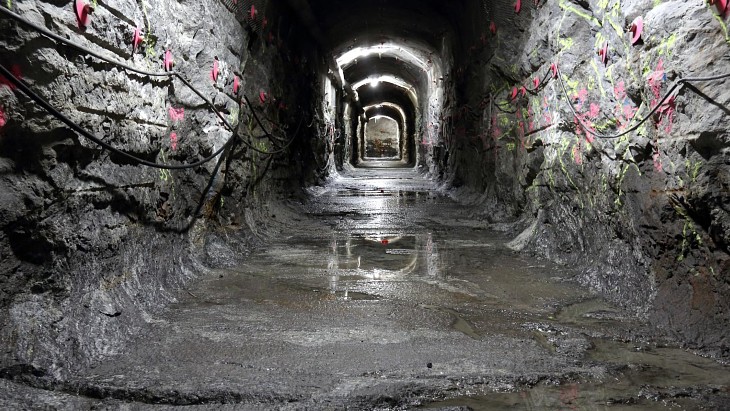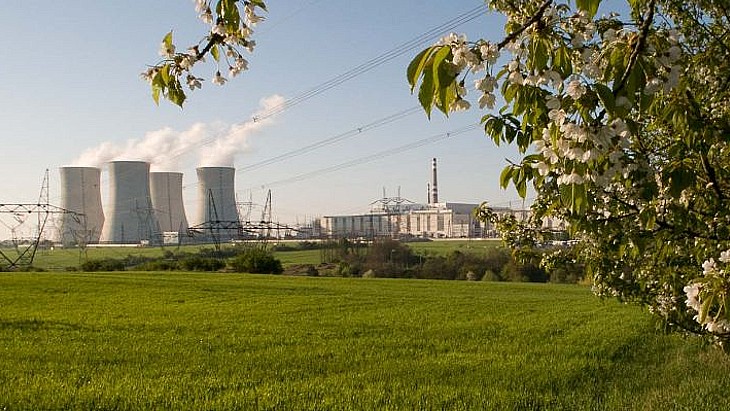The agreement was signed in the presence of Poland's Deputy Prime Minister and Minister of State Assets Jacek Sasin, who said the agreement for the development of SMRs aligns with industry modernisation plans, providing an opportunity for fast, effective and safe decarbonisation. "The European Union's climate policy forces us to transform our energy sector … In the future, the most stable source of energy will be nuclear power," he said.
Today's agreement between Synthos and PKN Orlen follows an agreement signed in June, and covers activities including promoting the technology, supporting the development of a relevant legal framework, exploring potential reactor sites, implementing joint projects and, ultimately, generating energy and heat using the technology for PKN Orlen's own, municipal and commercial needs.
"Nuclear will be one of the cheapest energy generation sources. We hope the first reactor to be deployed in Poland by 2030," PKN Orlen President Daniel Obajtek said, noting that a letter of intent has already been signed to outline the terms on which the first reactors would be supplied to Poland.
Investment in MMRs and SMRs would support further rapid growth of the Orlen Group and help it to significantly reduce carbon emissions, he added, with MMRs being an "attractive addition" to an energy portfolio based on renewable energy sources and natural gas. "Accelerated deployment of small nuclear reactors would enable us to better balance our generation asset portfolio and build a low-carbon and innovative energy generation segment. Our priority is to harness the potential of the Polish economy and local suppliers. We consider it vital that modular reactor projects be 50% owned by Polish companies," he said.
The two companies have a unique business relationship as chemical and petrochemical businesses that have worked together for almost 20 years, Michał Sołowow, owner of the Synthos Group, said. GE's 30 years of market presence and "massive supply chain" in the country are also a "vital element" of the investment process, offering Poland an opportunity to become a regional SMR manufacturing hub, he added: "We are glad the scope of our collaboration will now also cover innovative nuclear power as another area of critical importance to our companies and the entire Polish economy."
PKN Orlen and Synthos Green Energy will each hold 50% of shares and voting rights in the joint venture, giving them joint and equal control of the project. The shareholders plan to apply for the necessary regulatory clearance to form the joint venture by the end of December, they said.
The BWRX-300 is a 300 MWe water-cooled, natural circulation SMR with passive safety systems that leverages the design and licensing basis of GEH's ESBWR boiling water reactor. Earlier this week, Ontario Power Generation (OPG) announced its choice of the BWRX-300 for deployment at its Darlington site in Canada, where it says a commercial, grid-scale, SMR could be completed as early as 2028. "OPG's choice of the BWRX-300 technology is also a major catalyst for projects deployed in Poland, because it means the first project in Poland will be a NOAK (Next of a Kind) implementation, with the FOAK (First of a Kind) project deployed in Canada as its reference design," PK Orlen said. "Thus, the projects in Poland will build on Canadian experience in the development, investment process preparation, licensing, construction and operation of a nuclear power plant of the same type."
"The BWRX-300 is an innovative, clean energy system that is based on proven technology, and represents an ideal solution to retrofit Poland's large fleet of coal generation," GE Hitachi Nuclear Energy Executive Vice President Jon Ball said.
Polish national energy policy calls for the construction of 6 to 9 GWe of installed nuclear capacity based on large-scale pressurised water nuclear reactors, with the first of those units to come online around 2033.

.jpg)





_53514_33880.jpg)






